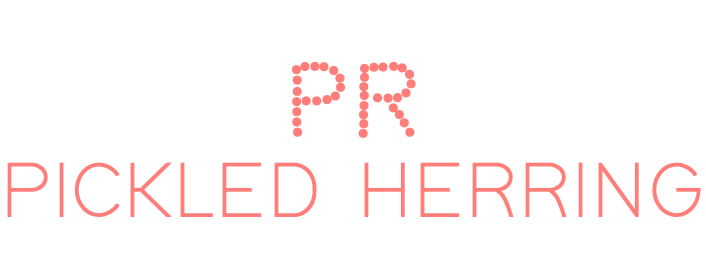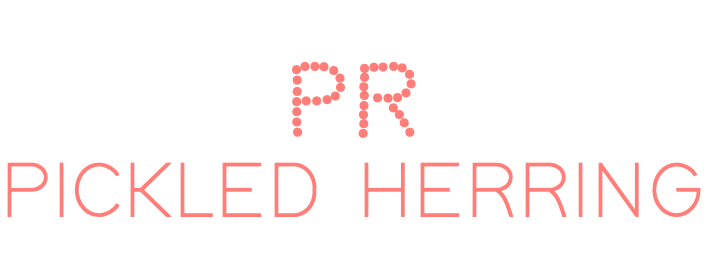Blog
I get it. Starting a new business or running an existing one makes you Jack of all trades. You're the accountant, the business development person, the website editor, the social media guru etc. etc.
I get you. Therefore, to help you boost your marketing and PR I provide tips and tricks of the industry, give you food for thought and hopefully bring you some clarity on how the right comms can benefit your business.
Talking about yourself should be fun, so let's get started!

PR takes thought, it takes consideration and it takes time. That’s not to make it sound scary however, it’s important that you know who you are talking to, what they are reading, what you are saying and what you want to achieve. PR can bring your brand a whole new audience, expand your customer base and give you real credibility, ultimately helping you to grow and grow. To help you start your journey and be successful in your communications I wanted to provide a few tips on how you can do it successfully. Before you start however, there are a few things to scope out and get clarity on: Know your USPs: This is true to anything you do and you will have most likely already outlined this in your business planning stages however, make this work for your PR too. There are so many companies that are trying to get noticed each day so think about what sets you apart from competitors or how you do things differently to others and put this into consumer language without too much jargon. It's all about convincing someone why they should work with you/buy from you. Know your audience: This is incredibly important. There are so many routes and options with PR however, you don’t want to show up in parenting press if your main audience isn’t parents etc. Firstly, look into who your current customers are, what do they read, where do they go, what data do you have on them and what do they care about. Do the same for the new audience you want to get onboard and you know what publications you need to go to. What do you want to be known for: This may sound similar to USPs but this is about building around those and giving yourself a voice. You may want to be known as an expert on certain topics or be the one people come to for the latest trends in retail, whatever your goal, make sure you scope out what this will sound like. Passion comes through verbally and written if you really care about something. Know your budget: People often shy away from PR because they think it’s too expensive however, PR doesn’t have to be expensive if you spend your budget in the right way. Again, this totally depends on what you are trying to achieve however, investing in e.g. a survey what will give you stats to provide an edge and back up your story is always a good idea to reach a wider, more mainstream media. This can be a Google survey that starts at $100. When this has been confirmed it’s time to think about how you will get yourself out there and start implementing: Create a plan: this is my favourite part. I always recommend doing a brainstorm with different people and have some fun with this! Tactics are fun and as long as they map back to what you are trying to achieve and resonate with your audience the world is your oyster. If your budget is tight think about simple press office stories that ties into events, seasonal trends, TV programmes etc. to make it easier to get covered. Build out your pitch: With this I always say - why would they care? A great pitch starts with a bit of background, continues with the actual pitch and finishes with what you can offer them (e.g. an interview, stats, images, comment etc.). Do remember that often you will get a credit at the end of a story as PR isn’t advertising so don’t expect the feature or article to be all about your brand each time. However, media loves small businesses so building relationships with the journalists are important. Pitch to media and online: It's completely fair to be nervous but remember all they can say is no. A point to note is that media are always on a deadline, extremely busy and understaffed so know what you are saying to get their attention first off. I promise you the kick you get when you secure your first piece of coverage is unreal! Good luck – can't wait to hear how you get on!

It can be overwhelming trying to get yourself more exposure as a small business. Questions you may have asked yourself include where do I start? Who will even care? How do I grow my following? How do I appear as an expert? There are so many options and routes to take nowadays and it’s difficult to know what’s best. First off as I’ve said in the past, decide where to focus. If you try and do everything at once it will stress you out and be unproductive. So, decide what your aim is e.g. grow your following, expand your reputation outside of social media, be seen as an expert, target new customers etc. Then decide your tactics. To help you along the way here are a few examples of how you can quickly act and overcome that overwhelmed feeling. Traditional media Get featured in a magazine and newspapers. Build out your profile and try local first, remember this is not an advertisement, this is PR and free exposure. If you are a freelancer or offer a service why not position yourself as an expert? if you have a product why not offer tips and trick or even get your product featured? A tip is to tap into something seasonal, so if you run a digital website business pitch an article around the best tips for online shopping this Christmas, if you create bespoke cards tap into the wedding season or similar. Bloggers/influencers do it all the time – trust me – so why not you?! Online Try your luck with blogs and online publications too. Traditional media all (pretty much) have online sites where content often is different to that of the magazine. At times you can get lucky and they will feature you in both print and online however, getting a link to your profile, website or social page can drive traffic and sales straight to you. Social: cross promotion Collaborate with someone in your industry. It shouldn't be the same product or service as that’s a clash of interest however, it is all about your community as that will create word of mouth. This not only creates exposure to other audiences but it also allows you to join conversations you may have not been part of before. Helping each other out is so important – remember it’s about community and not competition. Social: facebook groups This one is easy, join them. The exposure here is invaluable, especially as a small business as it’s how you find out how small the world is as there will always be someone who knows someone. Social: you Don't forget people will look you up when they see any of the above to either follow you or check out your services/products. Make sure your own pages are up-to-date and offer them something different that you are proud of too. I really hope this was helpful! In summary pick your battles and decide what you will do first, then select your tactic and either up-skill yourself or outsource where you need to. As I always say it’s not a weakness it’s a strength to ask for help!

Often small businesses put money and time into advertising and marketing as a single strategy however, what they miss out on in communications is PR. In a world where your online reputation can make or break you overnight it is more important than ever to have a strong PR strategy to help tell your story and amplify what you are all about. Not only will PR widen your customer base but it will build your brand authority, expand your reputation, widen your customer base and gain you trust and credibility in new places. In my opinion one of the best things you can do for your business is to develop and execute a PR plan. Here are a few tips on why you should take advantage of the power of PR: PR helps your brand become recognised As part of your marketing strategy, should be your PR strategy as it helps define the message of your brand, fine-tunes it and keeps it consistent. We need to make sure that consumers understand and trust you and don’t get mixed messages from different platforms. This is especially important for small businesses, which lack the name recognition of larger companies. No need for large budgets Just because you have small budgets doesn’t mean you can’t make a large impact. Effective PR needs a plan, which you can hire a PR consultant to work with you on. Media outlets love small businesses because of their uniqueness so make sure you tell that story to the right people and it will benefit you hugely. Good PR takes time In my decade of working in PR and Marketing I have always found that small and large businesses want immediate results from PR and sometimes that can happen. However, good PR takes time and should be thought of in the same context as a long-term marketing strategy. Think of it like this, PR builds credibility with future customers, which will result in sales down the line by building up that pipeline.

As a small business owner, you are constantly playing jack of all trades and throwing yourself in the deep end as you work towards growing your brand, gaining skills and working towards growing your brand. It's no wonder that small businesses often find it tricky to invest time, let alone money, in marketing. At least enough to make a difference to their business. I know first-hand the variety of challenges entrepreneurs and SMEs face when it comes to marketing. Budget is limited, expert skills are not necessarily at your disposal, head-space is given to other areas of the business and it’s difficult to keep up with the fast-paced world when it comes to constant innovation in technology and marketing. No wonder it takes a business a good 3-5 years before they even consider marketing support. I’m often asked about how to tackle marketing and get started properly. Here are my main tips to kick start your journey of building your reputation: Know your purpose and your values I see so many entrepreneurs and small businesses being successful in terms of profit but without a clear purpose and values that can set the basis for a strong communications plan, internally and externally. Ask yourself what are you trying to do, why are you doing it and how are you and your offering different to everyone else? Have those answers and not only will your staff want to work for you but customers will also want to know more about you. Decide where to focus By this I don’t mean to one day wake up and say I’m going to do this, no, use your data to understand where your customers are spending their time. There are so many ways to promote your business however, you have to refine your approach through clever knowledge and stick with it. If you jump from thing to thing you won’t get the results you need. Stand out Why should I pick you to spend my money with? Know your Unique Selling Points (USPs), it’s more relevant now than ever. Branding consistency and differentiation apply to your website, social channels, paid ads and everything that carries your logo or business name. Your visual style, fonts, language and overall tone should be consistent on all of your platforms and channels, whether online or offline. Outsource where you need to I’ve always said to not pretend to know everything. It's OK to not know everything. In fact, I believe it is a strength to admit that you need support. When you are ready shop around, know your budget and speak to a number of people to get a feel for who might fit perfectly into your business whether that be a new staff member or freelance support to get you on the right path. People have spent decades perfecting skills, there’s a reason why you pay good money for those who know their stuff.

When you start a new business it’s all about making enough money to sustain that business making it to that all-important five-year mark. I totally get it however, if you want to grow and deliberately improve your reputation you need to stop making marketing a distant afterthought and start making it part of what feeds sales and ultimately helps tell your PR story too. With my background I’ve worked with many companies, large and small, and I’ve seen huge improvements when founders and senior members of staff have championed marketing and made it an essential function of the business. So how can I make you think differently about making sales and marketing work together? Let me give it a try. One clear plan I’ve seen it many times in large and small businesses that sales and marketing plans are separate. They are absolutely different - marketing plans identify your business' target market and creating strategies for reaching those customers. Sales plans detail the strategies the business will use to sell products and services and increase revenue - but sales need to form part of the larger marketing strategy, always. Make the money you put into marketing work hard for getting those prospects over the line and maximise your profit. Set goals together Both sales and marketing have a clear focus on reaching the goals of the business. For a small business goal setting is important as it helps hold you accountable for the tasks that will ultimately increase your profit margins and attract/secure new customers. If you work together you can celebrate the successes as one, keep yourself and the team motivated and in turn be rewarded by what you take home. Marketing as strong sales collateral The issue that often is voiced is how do you measure its worth?! With sales you have hard numbers that are clear to quantify however, you should look at marketing as part of your sales efforts as any content you create, such as videos, reports, case studies, PR coverage and award entries should be used as strong collateral for getting those sales over the line or even better for prospects to come to you.

As a business owner you are proud of your achievements, what you stand for and your offering; however, if you sit down and don’t tell people about it how do you expect anyone to join you in your glee? This is a very simple, and I hope persuasive, explanation as to why marketing is important. There might be a flaw in the plan The flaw that many small businesses and entrepreneurs make is to depend on a few loyal customers but at the end of the day you still have a full warehouse, an empty pipeline or no growth. That's because no one knows you are there. This is why marketing is so important to successful business. Without it it’s difficult to build a strong reputation with a lasting impact which in turn will limit your scope. Start making people notice you Marketing gets the word out about your business. It allows you to connect with potential customers and inform them of all the services you offer. It builds brand recognition, boosts sales, helps you construct a consistent client-base, and helps you make your mark on the world. Don’t fade into the background but use marketing to engage with clients and make your name known to ensure your business is the best and most successful it can be. For more tips on overcoming marketing dilemmas check out my post here: http://www.pickledherringpr.com/tips-for-overcoming-marketing-dilemmas-for-small-businesses

